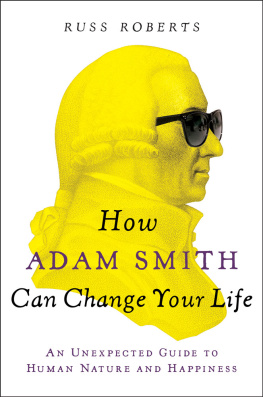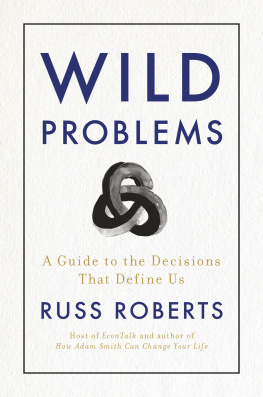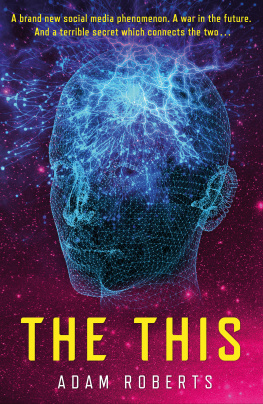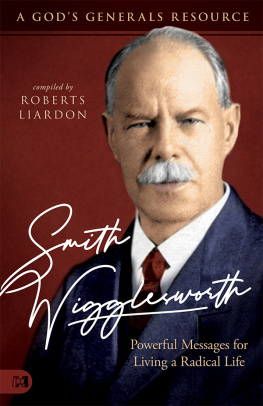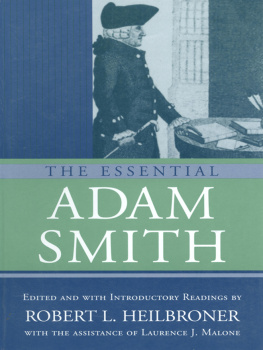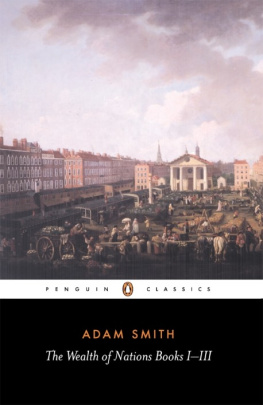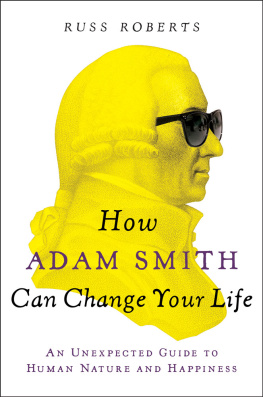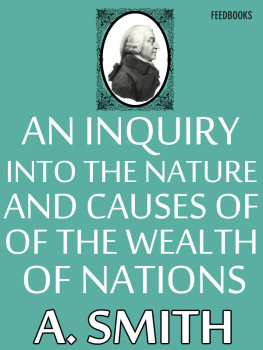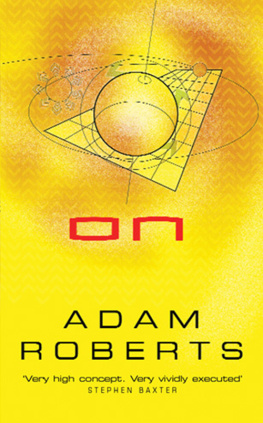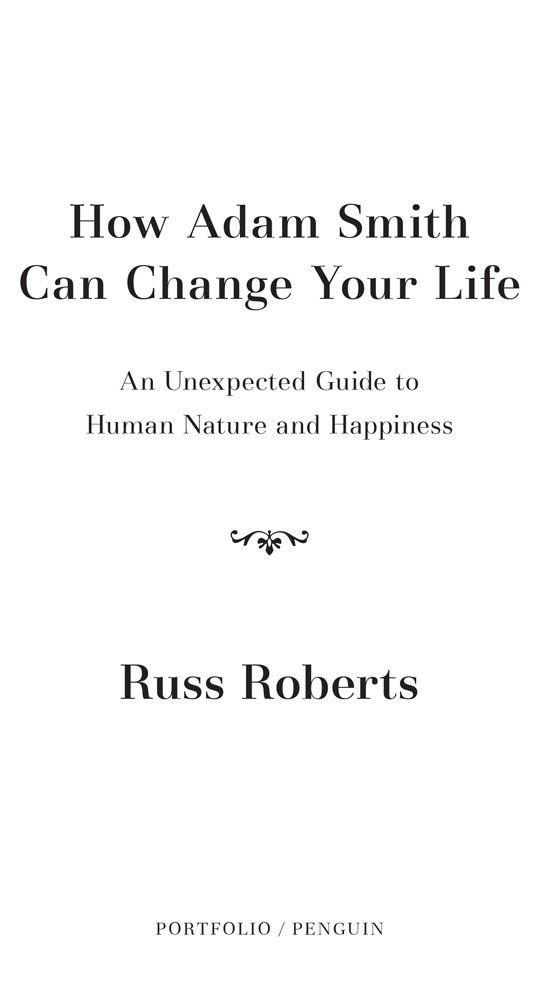Chapter 1
How Adam Smith Can Change Your Life
What is the good life? Religion, philosophy, and modern self-help books grapple with the question, but the answer is elusive. Does it mean being happy? Or is it about wealth and professional success? What role does virtue play? Does the good life mean being good? Does it mean helping others and making the world a better place?
Two hundred and fifty years ago, a Scottish moral philosopher addressed these questions in a book with the unglamorous title The Theory of Moral Sentiments. The book was Adam Smiths attempt to explain where morality comes from and why people can act with decency and virtue even when it conflicts with their own self-interest. Its a mix of psychology, philosophy, and what we now call behavioral economics, peppered with Smiths observations on friendship, the pursuit of wealth, the pursuit of happiness, and virtue. Along the way, Smith tells his readers what the good life is and how to achieve it.
The book was a success in its day. But today The Theory of Moral Sentiments is virtually forgotten, dwarfed by the reputation Smith achieved with his second book. That book, An Inquiry into the Nature and Causes of the Wealth of Nations, published in 1776, made Adam Smith forever famous and gave birth to the field of economics. While few people still read The Wealth of Nations, its undeniably a famous book, a classic. Fewer still read or have even heard of Smiths other book, The Theory of Moral Sentiments.
For most of my career, I hadnt read it either. Thats a bit awkward for an economist to confess. Youd think I would have read both major books by the founder of my field. But until recently, I knew very little about The Theory of Moral Sentiments. In fact, for most of my career, I never heard anyone mention Smiths other book, the not-famous one, the weird one with the daunting title that didnt sound like it had much to do with economics.
My relationship to The Theory of Moral Sentiments changed when my friend Dan Klein at George Mason University suggested that I interview him about it on my weekly podcast, EconTalk. I agreed, thinking it would get me to finally read the book. I did at least own a copyI had bought it maybe thirty years earlier, thinking that an economist should at least own both of Adam Smiths books. I took it down off my shelf, opened the book to the first page, and began reading.
How selfish soever man may be supposed, there are evidently some principles in his nature, which interest him in the fortune of others, and render their happiness necessary to him, though he derives nothing from it except the pleasure of seeing it.
Forty-two words. A long sentence by modern standards. I had to read Smiths opening sentence twice before I understood what he was saying: that even though people can be pretty selfish, they do care about other peoples happiness. Makes sense. I kept reading. I read the first page. Then the second page and the third. I closed the book. A second confessionI had no idea what Smith was talking about. The book appeared to begin in midstream. Unlike The Wealth of Nations, which is delightful and engaging prose from the get-go, The Theory of Moral Sentiments is very slow going. I had a moment of uneasemaybe I shouldnt have agreed to the interview. I wasnt sure I could figure out what this book was about. I was going to embarrass myself. I thought of asking Dan to cancel.
I pressed on, hoping to find my footing. I started over. Eventually I began to get a feel for what Smith was up to. A third of the way in, I was hooked. I lugged it to my daughters soccer games and devoured it at halftime and when my daughter wasnt playing. I started reading excerpts out loud to my wife and kids at the dinner table, hoping to get them interested in Smiths ideas about how to relate to others. The margins of the book began to fill up with stars and exclamation points marking passages I had enjoyed. By the time I finished the book, I wanted to shout from the rooftopsits a marvel, a hidden gem, youve got to read it!
The book changed the way I looked at people, and maybe more important, it changed the way I looked at myself. Smith made me aware of how people interact with each other in ways I hadnt noticed before. He dispenses timeless advice about how to treat money, ambition, fame, and morality. He tells the reader how to find happiness, how to treat material success and failure. He also describes the path to virtue and goodness and why its a path worth pursuing.
Smith helped me understand why Whitney Houston and Marilyn Monroe were so unhappy and why their deaths made so many people so sad. He helped me understand my affection for my iPad and my iPhone, why talking to strangers about your troubles can calm the soul, and why people can think monstrous thoughts but rarely act upon them. He helped me understand why people adore politicians and how morality is built into the fabric of the world.
And even though hes the father of capitalism and wrote the most famous and maybe the best book ever on why some nations are rich and others are poor, Adam Smith in The Theory of Moral Sentiments wrote as eloquently as anyone ever has on the futility of pursuing money with the hope of finding happiness. How do you reconcile that with the fact that no one did more than Adam Smith to make capitalism and self-interest respectable? That is a puzzle I try to unravel toward the end of this book.

